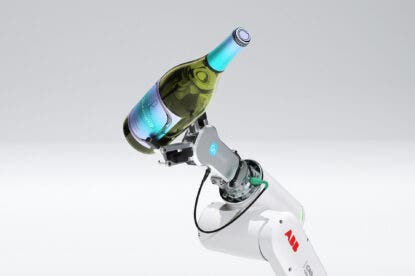Before the novel coronavirus pandemic upended the hospitality industry, most modern wine bars were straightforward. There would be 30 or so wines by the glass, several types of stemware, a few esoteric bottles, and maybe educational classes and tastings.
Due to rapidly changing health and safety protocols, however, wine bars must redefine themselves. Across the country, hospitality professionals have transformed white tablecloth restaurants and brick-and mortar bars into seasonal pop-ups. These wine bar pop-up ventures are a new breed of hospitality. Wine programs are abbreviated at some, while others reimagine who their audience is and what they want from hospitality businesses.
Dave Beran, James Beard Award-winning chef and owner of Dialogue and Pasjoli in Santa Monica, CA, debuted a casual wine bar pop-up, Tidbits, in early August. He wanted it to be extremely approachable, and to swap fine dining formality for a welcoming guest experience. “It’s more about the feeling than anything,” he says, noting that the pandemic has “pushed things into new test models.”
Tidbits serves eight a la carte savory plates and three desserts. The wine by glass selection hovers around six options and the pours are generous, seven ounces per glass.
Jordon Sipperley, wine director for Tidbits and Dialogue, oversees a shorter list at Tidbits but still showcases wines that excite him, like an Aglianico Bianco as one of two white wines by the glass.

Priorities are different at Tidbits, Sipperley says. “We’re not making a wine temple… We aren’t going to be fussy about glassware.”
Instead, Sipperley and his colleagues ask themselves, “‘What would get us out of the house? What type of place would we want to go to?’” The consumer response has been positive so far, according to Sipperley and Beran.
This summer, restaurateur Ian Hilton debuted Victura Park, an outdoor bar and cafe in Washington D.C., with his brother Eric and chef Erik Bruner-Yang. The team was originally set to launch a more traditional indoor restaurant at the Kennedy Center River Pavilion, but they changed course when coronavirus shuttered businesses. “We wanted to look at things people were comfortable reintroducing themselves to and …wineries [were one of them] because there’s a lot of room to spread out,” says Eric.
So, they outfitted Victura Park with a casual atmosphere and flexible seating to accommodate couples, solo visitors and quarantine pod groups. In keeping with coronavirus protocols, staff interaction is limited. Service is not tableside and cutlery and beverage vessels are disposable.
The menu at Victura Park is concise. There are nine wines by the bottle or glass, some beers and a couple of cocktails. The wine selection features the usual suspects, like Chardonnay, Pinot Grigio, Prosecco and Sauvignon Blanc.
Earlier this month, a popular New York City wine bar decided to explore a new pop-up business model in another region of the state. Manhattan’s La Compagnie des Vins Surnaturels opened a seasonal wine bar with rental cottages, Supernatural Lake, at Cayuga Lake in New York’s Finger Lakes region. Managing partner Caleb Ganzer and his team purchased an existing, 300-SKU wine cellar in the Finger Lakes to build out the wine list, which juxtaposes Old World wines with local producers.
Outdoor seating accommodates 45 patrons, and the feel of the venue is meant to be approachable. Local reception to Supernatural Lake has been positive, and the team is considering extending its run beyond this season.
Pop-up businesses are generally more affordable than permanent venues, which makes them attractive to proprietors now and always. By focusing on appealing to wider audiences, these temporary venues also capture the sincerest essence of hospitality and provide comfort many will want in a post-coronavirus world.
Last Updated: May 8, 2023















